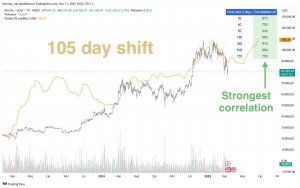The Inevitable WFH Paradigm
The Pandemic accelerated the Gig Economy by forcing the issue on work-from-home arrangements.

This article is a part of a series based on our Annual Strategic Report, The Future Is Gig. Download the report here.
While it cannot be said that the Covid-19 pandemic has been the main driver of the rise of the Gig Economy, it was undoubtedly the catalyst that accelerated the two main drivers, the increasing costs of the conventional employee-worker paradigm and the widespread proliferation of advanced productivity applications including remote conferencing and AI.
The Covid-19 pandemic significantly reshaped the traditional work environment, leading to a widespread adoption of remote work arrangements. According to a survey conducted by the Pew Research Center in 2021, around 71 percent of employed adults in the United States were working from home all or most of the time.
This shift has had a profound impact on the employee-employer relationship. Many workers, especially those with jobs that can be done remotely, express a desire to continue working from home even after the pandemic. For instance, 78 percent of those currently working from home all or most of the time said they would like to continue to do so after the pandemic, up from 64 percent in 2020. The pandemic has also accelerated existing trends in remote work, e-commerce, and automation, leading to a fundamental reshaping of work arrangements.

This increase in remote work has implications for the employee-employer relationship. It has provided greater flexibility for employees, with many expressing a desire to continue working from home.
However, it has also raised concerns about the impact on company culture, collaboration, and career advancement. Employers are now faced with the challenge of redefining work policies and practices to accommodate these changing preferences and to maintain a strong organizational culture and cohesive team dynamics.
The long-term effects of this shift on productivity, innovation, and employee well-being are areas that will require ongoing attention and study.
The statistics and trends indicate a significant and lasting impact of the Covid-19 pandemic on work arrangements and the employee-employer relationship.
As businesses navigate this new landscape, they will need to carefully consider the implications for their workforce, workplace policies, and overall business strategy.





